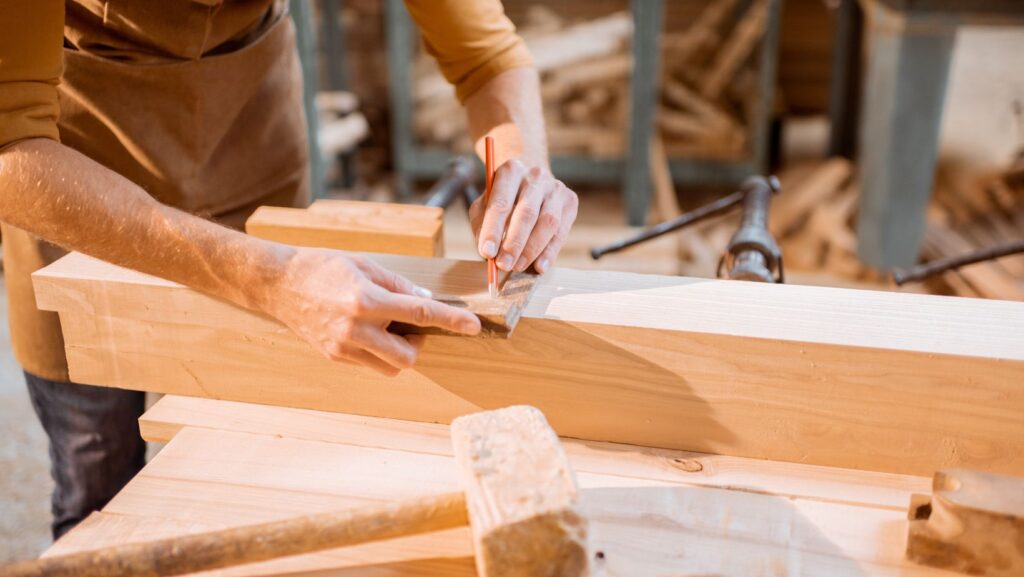Creating custom woodworking projects requires not only creativity but also the right tools.
As a minimalist, you might prefer a simple, focused approach, but precision is key to achieving exceptional results.
By selecting the right tools and adopting efficient methods, you can craft pieces that are not only functional but also visually striking.
Essential Precision Tools For The Job
In woodworking, precision tools are indispensable. A well-calibrated saw or planer ensures every cut is accurate, while a sharp chisel allows for intricate detailing that elevates any project.
While it might be tempting to accumulate a wide array of tools, focusing on a few key essentials is often more effective.
For instance, a quality table saw is crucial for making straight, accurate cuts. Pairing this with a circular saw for versatility and a router for creating smooth edges will cover most basic needs.
When crafting custom designs, tools like a jigsaw become invaluable for their ability to produce intricate, curved cuts.
For straight lines, a track saw is a wise investment, offering the confidence of precise cuts every time. Similarly, CNC routing has become an essential addition for intricate and consistent designs, particularly when working on complex or repetitive projects.
Services from trusted providers like Simply Plastics can be a great resource for achieving precision in customised woodworking tasks.
Alongside power tools, hand tools like a tape measure, square, and clamps should not be overlooked, as they are crucial for maintaining accuracy throughout your work.
However, it’s not just about owning the right tools; knowing when and how to use them is equally important.
Over-reliance on power tools for simple tasks can sometimes compromise precision. Simplicity, paired with skill, often yields beautifully crafted pieces.
Taking the time to master each tool ensures improved efficiency and superior results.
Choosing Materials With Care
Once you’ve selected your tools, the next step is choosing the right materials. While some woodworkers prefer exotic woods for their projects, a minimalist approach suggests focusing on high-quality, locally sourced wood.
Woods like oak, maple, and walnut offer both beauty and durability, and they can be used for everything from small decorative items to furniture pieces.

When choosing materials, consider their suitability for the specific project. For example, if you are making a custom table, you’ll want to choose wood with a grain that complements the intended design.
By choosing materials carefully, you not only reduce waste but also ensure that your project will stand the test of time.
For more intricate projects, you might even explore adding a personal touch by incorporating materials like acrylic or glass.
The Final Touches
Once you have all the essential tools and materials, the final touches will make your project stand out. Sanding is crucial for achieving a smooth finish.
Use progressively finer sandpaper until the surface is soft to the touch, and consider applying an oil-based finish for a natural sheen that highlights the wood’s grain.
Remember, the key to minimalist woodworking is embracing simplicity without compromising on precision.

By focusing on quality materials and the proper tools, you can achieve the sharpest details and smoothest finishes, turning your custom woodworking ideas into reality.
Crafting Pieces That Last
Whether you’re making a small shelf or an entire piece of furniture, the most important element is that your project reflects your craftsmanship.
Precision tools, carefully chosen materials, and attention to detail will ensure that your creations not only stand out but endure for generations. Keep it simple yet precise, and let your woodworking skills shine.
